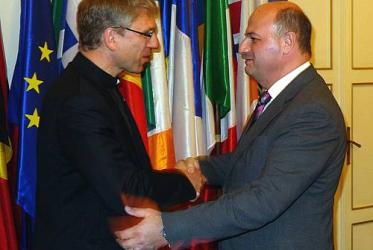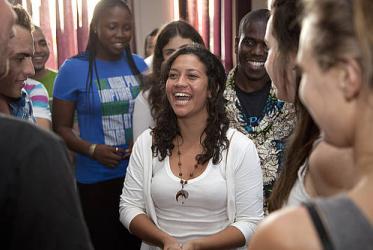Displaying 581 - 600 of 714
Church in Syria provides aid to conflict victims
21 February 2013
Nuclear tragedy finds a human face in Fukushima
19 December 2012
Bank freezes funds allocated to next CLAI Assembly
13 December 2012
Letters to the future: Eco-justice visions in South Africa
13 December 2012
Situation in Greece more than an economic crisis
20 November 2012
40 days – no emissions? Swedish urbanite lives the concept
14 August 2012
Reducing the threat of HIV remains a challenge
04 July 2012
Christian leaders “fast for fair food”
02 March 2012
Youth promise active involvement for environmental justice
14 December 2011
WCC member churches involved in food shipment to North Korea
18 November 2011
Ecumenical Water Network breaks new ground
03 November 2011
Water crisis in Tuvalu
13 October 2011
WCC Executive Committee in Ethiopia exposed to famine situation
13 September 2011
Water conflicts pose threat to global peace
04 July 2011
















